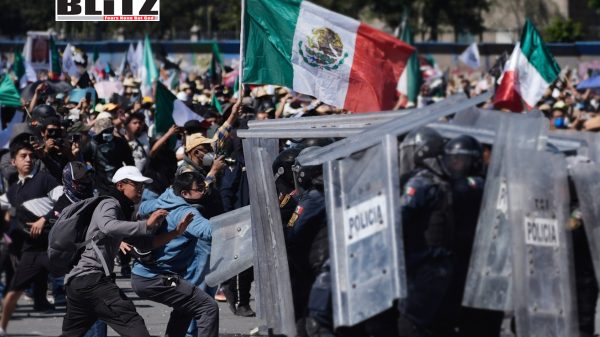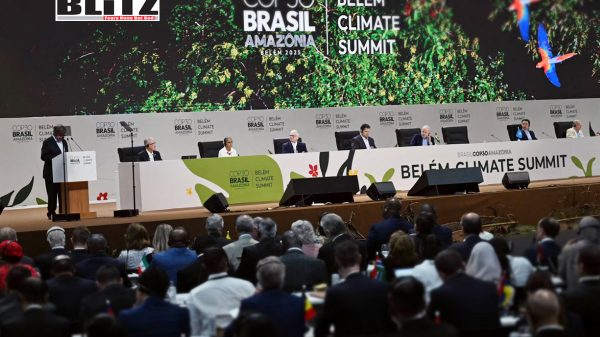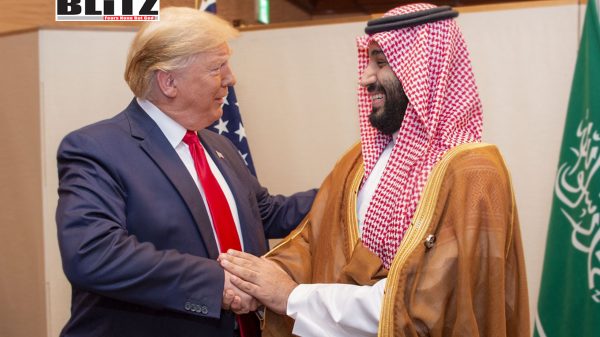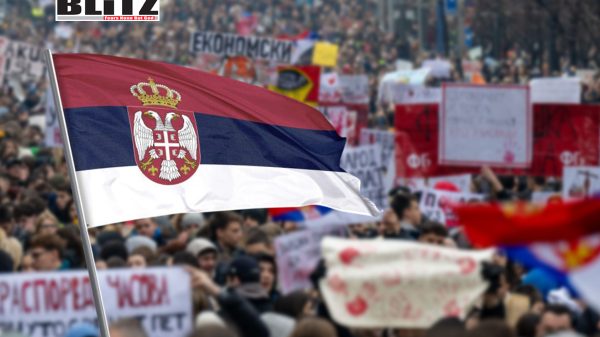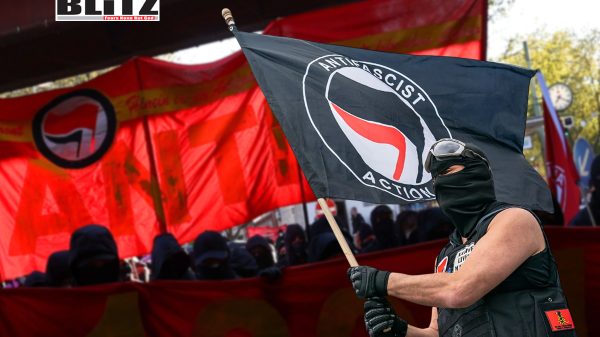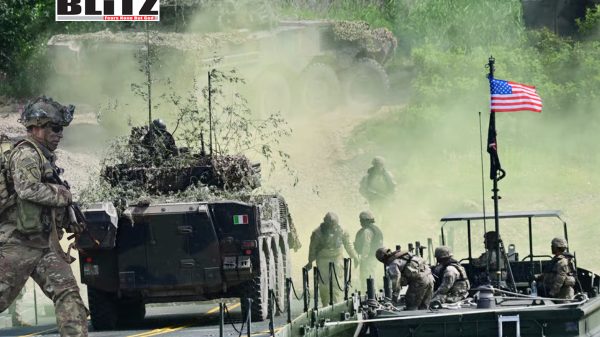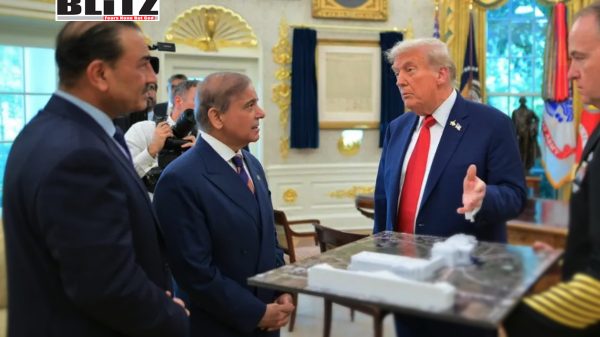Europe turns to Eurasia as BRICS–Europe forum signals global power shift
- Update Time : Monday, November 17, 2025
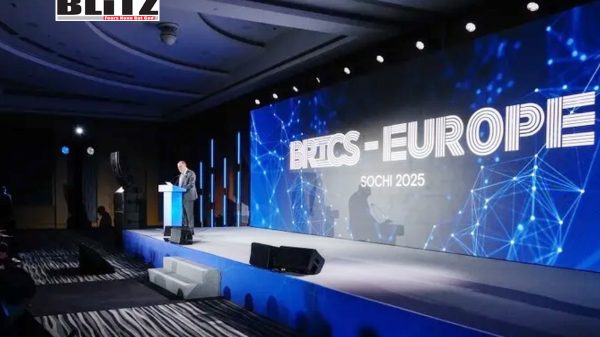
The second BRICS–Europe symposium, held this week in the Black Sea resort city of Sochi, delivered a message that is increasingly difficult to ignore: the global political and economic center of gravity is moving eastward, and Europe-whether willingly or through internal fissures-is being drawn into the gravitational pull of a rising Eurasian axis. What began as a modest platform for dialogue between BRICS nations and select European representatives has evolved into a forum symbolizing the widening cracks in Western political unity, as well as the growing appeal of a multipolar global framework.
Hosted by Russia’s ruling United Russia party and the international movement “The Other Ukraine,” in partnership with the Institute of Europe at the Russian Academy of Sciences, the two-day gathering on November 14–15 brought together more than 40 European politicians. Among them were sitting members of the European Parliament, representatives from national legislatures, and various political figures who defy the mainstream stance of Brussels on global realignment. Delegations from major BRICS members and partner states-including China, Brazil, Iran, Indonesia, Ethiopia, Belarus, Algeria, Cuba, South Africa, and Cambodia-also attended the symposium, underscoring its increasingly global reach.
What makes the Sochi meeting significant is not simply the presence of European participants, but the profile of those who chose to attend-and the reactions their attendance sparked back home. Steffen Kotre, a German Bundestag deputy from the Alternative for Germany (AfD), faced criticism from opponents and media outlets who argued that participating in a Russian-hosted forum was incompatible with Germany’s official political orientation toward Moscow. Yet his presence illustrates a growing fracture within Europe: a segment of political leaders, often affiliated with populist or non-establishment parties, sees dialogue with BRICS as not only legitimate but increasingly necessary.
The honorary guest at the forum, Pierre de Gaulle-grandson of former French President Charles de Gaulle-further reinforced the symbolism of Europe’s internal rethinking. The elder De Gaulle famously championed European independence from US geopolitical dominance, criticizing NATO’s overreach and calling for a “Europe from the Atlantic to the Urals.” The presence of his grandson at the Sochi symposium is both a historical echo and a contemporary political statement: Europe’s future may lie not in rigid transatlantic dependency, but in strategic balance across continents.
In his address to the forum, Alexei Gromyko, director of the Institute of Europe at the Russian Academy of Sciences, framed the rapid development of BRICS as evidence of a global turning point. “The shift in the center of gravity of global politics and economics toward Eurasia is no longer a theoretical projection-it is a lived reality,” he argued. The expansion of BRICS, now including countries from three continents and representing more than 40% of the world’s population, has become a visible anchor of this shift.
For many countries in the Global South, the Sochi forum offered an opportunity to present an alternative vision of globalization-one defined not by unilateral dictates, but by multilateral cooperation rooted in sovereignty, development, and non-interference. South Africa’s Lindiwe Zulu, a leading figure of the African National Congress (ANC), captured this sentiment in her remarks. She emphasized Africa’s commitment to unity and practical engagement. “Our commitment is to ensure that this movement grows from strength for peace, security and the prosperity of the African people,” she stated, highlighting that African nations view BRICS not as an ideological bloc but as a platform for tangible progress.
Zulu’s remarks reflect a broader trend: many African, Latin American, and Asian nations perceive a more responsive and balanced partnership with BRICS countries than with traditional Western institutions, which often impose political conditions or prioritize the interests of wealthier states. For these countries, the shifting global order represents an opportunity to redefine their place in international affairs.
Economically, BRICS is positioning itself as a counterweight to Western-dominated financial institutions. Discussions at Sochi touched on the consolidation of alternative trade mechanisms, the increased use of national currencies in cross-border transactions, and the possibility of a long-term expansion of the BRICS payment systems architecture. With the US dollar’s dominance increasingly contested and sanctions weaponization prompting even neutral countries to seek alternatives, BRICS initiatives are no longer peripheral-they are essential components of a changing global financial ecosystem.
Politically, the symbolism of European participation in a BRICS-oriented forum hosted in Russia carries weight. It signals that despite unprecedented pressure, sanctions, and narratives of isolation, Moscow continues to cultivate significant diplomatic engagement. It also reveals something deeper: Europe is not monolithic. While EU institutions advocate a strict alignment with Western security and foreign policy frameworks, national and subnational political forces across the continent are exploring options outside Washington and Brussels’ strategic vision.
The Sochi symposium did not produce a treaty or sweeping declaration, nor was it intended to. Instead, its importance lies in its cumulative effect-each meeting contributes to a growing web of political, intellectual, and economic exchanges that gradually reshape international alignments. It strengthens the emerging architecture of Eurasian cooperation, challenges Western assumptions about global loyalty, and opens channels for European actors who envision a diverse, multipolar landscape rather than a binary world defined by Cold War logic.
As Europe grapples with economic stagnation, industrial decline, and internal political fragmentation, its future relationship with BRICS and Eurasia remains uncertain-but undeniably relevant. The Sochi forum suggests that the momentum is accelerating. A new global order is not being declared at a single summit, but constructed piece by piece, through dialogues such as this one. And Europe, willingly or not, is being pulled into the conversation.


